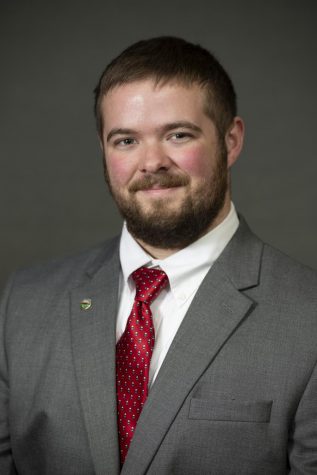Topeka Metro driving towards the future
February 23, 2019
The city of Topeka’s metro system is set for an upgrade in the near future as new electric buses are tested as possible replacements for the diesel engine buses that have been driving the streets of Topeka for the past several years.
One of the new buses the Topeka Metro system is considering investing in, the Flyer Xcelsior Charge, drove a route on California Avenue Feb. 19. The Metro system believes that electric buses are the future for our city as they offer a plethora of benefits to our transportation system and drive down the costs of the current city buses.
Buses such as the Xcelsior Charge are quieter, take no diesel fuel and are far more environmentally friendly than the buses in the metro system today. The buses are also more reliable as they lack the common components that often break down on the diesel buses the city currently uses. The large cost of fuel for the diesel buses is one of the greatest deficits for the city Metro as the buses consume a great amount of fuel every day.
The city buses benefit thousands of Topeka residents every day, including Washburn students. Many students at our university rely on the city Metro to save on transportation costs while in college because the buses are free to everyone attending Washburn. The buses provide reliable and clean transportation for Topeka and, if they are upgraded to electric buses, will be much more fuel efficient and less costly to maintain.
Susan Duffy, the Topeka Metro General Manager, said that she is looking forward to the new buses coming to Topeka.
“Every 12 years we are allowed to replace some of our buses. We are due to replace 16 of our existing 26 buses in 2023 and we are currently considering new electric buses from five different producers,” Duffy said. “If these buses can run well in the extreme cold of, say, Calgary, Canada, and the heat of California, then they will be perfectly suited to Topeka. These new buses will drive down the everyday costs of maintaining the Metro system and we will end up paying a lot less for fuel.”
Andy Fry, an engineer for the Topeka Metro, spoke about the benefits of the Metro system in Topeka.
“The buses can get people from the NOTO area to Wanamaker reliably in a timely manner,” Fry said. “Our bike service also helps people in Topeka, especially college students, go beyond the bus routes and explore more of the city on their own.”
Duffy also elaborated on how the city of Topeka might see autonomous transportation services in the near future. The idea of autonomous transportation on Washburn’s campus to help students travel quickly from one end of the campus to the other is not out of the realm of possibilities.
Washburn students are encouraged to experience the Metro system in Topeka as the buses are free with a Washburn ID and they can also teach students how to use a public transportation system. Knowing how to safely navigate the local metro system of a major city can be a very useful skill later in life and there is no better opportunity than to use the Metro system in Topeka. Be on the lookout for the new electric buses in the following years.



